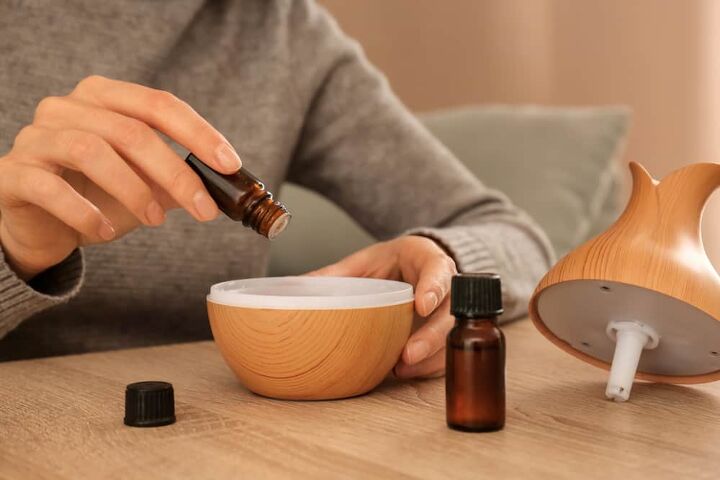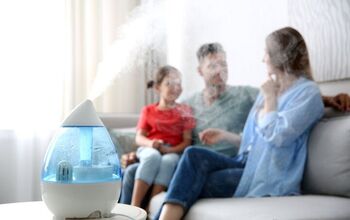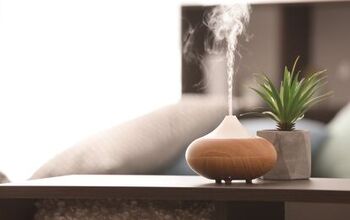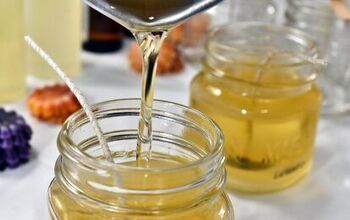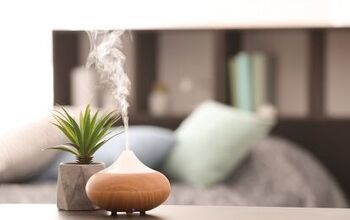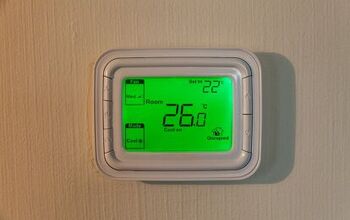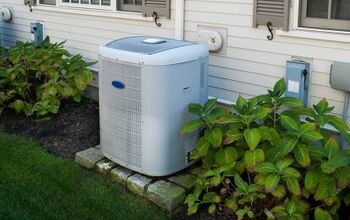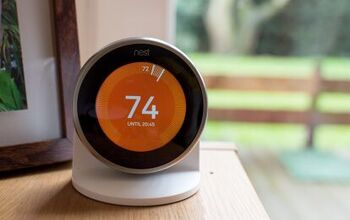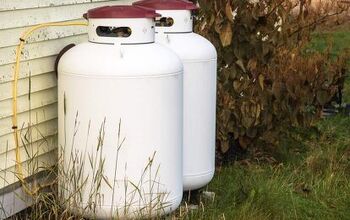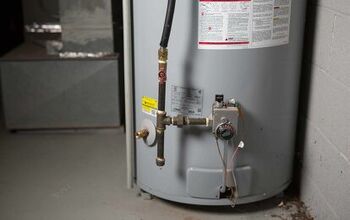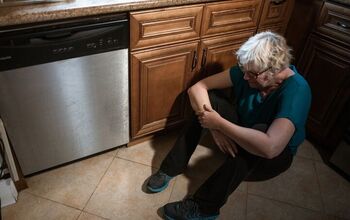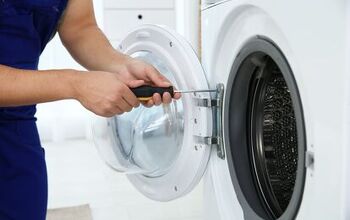Can You Put Essential Oils In A Humidifier? (Find Out Now!)

Aromatherapy isn’t just a trend; it’s a method of holistic healing that’s been around for centuries. There are numerous benefits to using essential oils diffused through the air, but what’s the safest way to do so?
You can distribute essential oils through your home by using a diffuser that looks and acts much like a humidifier. But putting essential oils in a cool mist or warm humidifier will cause damage to the appliance. It is not recommended to put essential oils in a humidifier.
Humidifiers vs. Diffusers
There are two types of humidifiers: cool mist and warm mist. Cool mist humidifiers use a fan to send small droplets of water into the air. Alternatively, warm mist humidifiers bring water to its boiling point in order to vaporize the droplets.
Humidifiers are equipped with a water tank designed to run with simple tap water. Some people choose to use distilled water if their tap water has an exceptionally high mineral content. That kind of hard water can cause buildup inside the appliance.
If you put anything other than water in the tank, you run the risk of damaging the humidifier. Oils can clog the mechanisms that distribute the droplets and cause the machine to malfunction.
Diffusers, on the other hand, are designed to run with water and oil inside of them. Their mechanisms work differently and will not be compromised by oil in their tank. They vaporize both oils and water into tiny particles that you can inhale for therapeutic benefit.
A Consideration for Diffusing Oils
When we inhale essential oils, they travel quickly from the nasal cavity to the brain. This sends signals that can shift our mood or body.
However, it’s possible to have too much of a good thing. Diffuse oils intermittently in order to not overload the body.
Why Do I Need a Humidifier?
Humidifiers are commonly used in homes in dry climates or during dry seasons. Both air conditioning and heating systems can dry out the air in your home. This can lead to dry skin, itchy eyes, nose bleeds, and respiratory irritation.
Small, portable humidifiers can be used in college dorms and hotel rooms while traveling. Larger units can be set up in bedrooms, common areas, and other places that need humidity regulation. In some cases, this can also be true for storage areas.
Health Benefits of Humidifiers
During cold and flu season, humidifiers can be helpful to open up airways to relieve congestion. They’re especially effective when paired with essential oil or inhalable medicine, like many products made by Vicks. (Think the menthol-based Vicks Vapo-Rub of your youth, but in the air.)
An optimal level of humidity lets you sleep better, which itself can boost your immune system. Humidifiers also help to relieve snoring due to congestion.
Newborn babies are also prime candidates to benefit from humidifiers. It keeps their skin soft and their airways clear as they breathe through their tiny noses. This leads to a better night’s sleep for babies and their caregivers.
Singers and athletes use humidifiers to keep their voices and bodies in top performance shape. Musicians’ instruments can also be very sensitive to changes in humidity, so a humidifier can help regulate environmental conditions.
Why Do I Need Essential Oils?
Each blend of essential oils provides a different set of therapeutic benefits. For example, they can help you relax, fortify your immune system, perk up, get grounded, or even clean the air.
Maybe you want lavender’s calming scent, invigorating citrus, grounding and clarifying sage, earthy patchouli, or uplifting peppermint. Both eucalyptus and tea tree oil have anti-inflammatory and anti-viral properties, making them good choices for cold and flu season. While lavender is calming and peppermint is stimulating, they can both be soothing for headaches.
Maybe you’re interested in essential oils for their therapeutic benefits or just like the way they smell. Either way, this form of aromatherapy can replace candles, room sprays, or synthetic air fresheners.
What Do Manufacturers Say About Using Essential Oils in Humidifiers?
Each model of humidifier comes with an owner’s manual that details specific instructions for care. The manufacturer’s recommendations around essential oils vary.
Crane Humidifiers
Crane says that you should not use oils in their cool mist humidifiers. This ultrasonic model uses a nebulizer to vaporize water into the air.
An internal circular component vibrates to create water droplets, which are then pushed up and out by a fan. Oils can clog the nebulizer and prevent it from properly releasing mist, causing the tank to crack.
Dyson Humidifiers
Dyson also says no to oils in the tank. They clearly address this question in their user’s manual. One signature feature of this Dyson design is an ultraviolet light that kills bacteria in the tank. Adding oils may disrupt this necessary process.
Homedics Humidifiers
Homedics offers an essential oil tray on some models. This tray allows you to reap the benefits of essential oils without putting them directly into the water tank.
Vicks Humidifiers
Vicks cautions against essential oils in their cool mist humidifiers too. Their warning states that water is the only thing that should go in a humidifier’s tank. Putting oils in the tank will void the warranty.
Instead, they offer different models of humidifiers specifically designed to accommodate oils and medicines. This includes Vicks products in addition to a variety of essential oils.
Honeywell Humidifiers
Honeywell offers both a cool and warm mist humidifier option for those looking for both humidifying and diffusing properties. They feature a tray or cup for essential oils or other medicinal inhalants. But they caution against putting oils in a traditional humidifier, saying it can damage the components.
What Do Essential Oil Enthusiasts Say?
Just like you can find corroboration for any theory on the internet, conventional wisdom about essential oils varies greatly. Depending on the source, some people will tell you that they are 100% safe, while others will name numerous risks. The truth lies somewhere in the middle.
Heating essential oils compromises their therapeutic properties, so experts recommend using them with a cool-mist system only. And be careful not to use too much– a few drops should be potent enough for the whole tank of water. A proper amount is therapeutic, but too much can be toxic to the body.
It’s also not advisable to run a diffuser or humidifier with oils continuously: too much can overload the body. That’s why diffusers are designed to run intermittently, unlike humidifiers.
Some oils, like citrus, degrade plastic over time, so they aren’t ideal for use in humidifiers. If you do choose to use oils in a humidifier, clean it frequently. This helps prevent mold, the buildup of oil residue, and mitigates long-term damage to the plastic.
When in Doubt, Ask an Expert
Most importantly, please seek medical attention from a licensed healthcare provider for any severe illness or health concern. While essential oils can be an integral part of wellness, they are not a cure-all for illness. Consult with healthcare providers, holistic healers, and trusted sources to make sure you’re using oils safely and appropriately.
Taking Care of Your Humidifier
Humidifiers are not particularly high maintenance if appropriately used. Most manufacturers recommend rinsing the tank daily and changing the water frequently to prevent buildup.
If necessary, you can clean it with white vinegar. This popular cleaning solvent is non-toxic and natural, so it’s not dangerous to inhale if some remains in your tank. Vinegar is also very effective at combating mold growth.
You will need to do a considerably larger amount of maintenance if you decide to use essential oils in your appliance. It will require more frequent and thorough cleaning. Additionally, you will likely need to replace it altogether more often. The clogs and residue that oils leave behind will shorten the lifespan of your humidifier.
The Right Tool for the Therapeutic Job
While many people try to use a humidifier as a diffuser, only one is properly equipped to disperse essential oils throughout your home. If you’re just looking for relief from dryness, a humidifier will be the right appliance for you.
But if you’re looking to add aromatherapy to your home, consider getting a diffuser instead of a humidifier. They are specifically made for use with oils and will last much longer than an improperly used humidifier. A diffuser will also provide more benefits of essential oils when they correctly distribute the oils.
Related Questions
Is there any kind of DIY fix that allows you to diffuse essential oils without putting them in a humidifier’s water tank?
Yes, you can create a DIY diffuser in a pinch. Soak a cotton ball with the essential oil of your choice, then place it over the opening where the mist stream begins. That way, the oil’s scent will spread through the air without contaminating the water supply.
Can I use essential oils in my CPAP machine?
No, it’s not safe to put essential oils anywhere inside your CPAP machine. This machine is designed to propel air into your respiratory tract, and propelling droplets of oil in this manner can cause lung irritation.Instead, place a tray or diffuser of essential oils on a surface near the air intake of your CPAP machine. That way, the scent will be brought into your lungs indirectly with a much lower risk of irritation.
Related Guide

Stacy Randall is a wife, mother, and freelance writer from NOLA that has always had a love for DIY projects, home organization, and making spaces beautiful. Together with her husband, she has been spending the last several years lovingly renovating her grandparent's former home, making it their own and learning a lot about life along the way.
More by Stacy Randall



